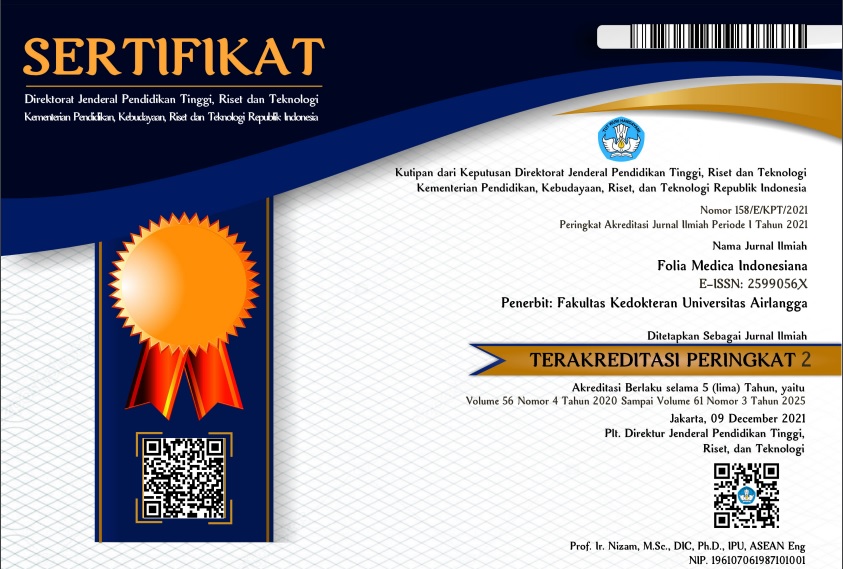Abstract
High-intensity exercise (3000-meter runner) contributes to muscle fatigue. Fatigue can be determined by measuring blood lactate levels. Blood lactate levels are a product of anaerobic metabolism. Lactate accumulation due to anaerobic physical activity can inhibit the glycolytic enzyme that affects decreased ATP production, damage of the calcium and sodium pumps in the muscles and causes fatigue. This study aimed to analyze the effect of vitamin E on the level of fatigue through the response of blood lactate levels in the runner 3000 meters. This research was a quasi-experimental research with a pretest-posttest design. Research subjects were 9 volunteer athletes (3000 meters runners) Aceh province, male, and aged 15-20 years. The treatments were vitamin E at a dose of 1x400 IU per day and administered for 14 days. Blood lactate levels were examined using the method of calorimetry. The statistical analysis was using the homogeneity test of variance (Levene's test), the normality test (Kolmogorov-Smirnov test) and paired t-test with a significant level of 5% (p-value<0.05). The results showed that blood lactate levels decreased approximately 13.93% after vitamin E supplementation. There was no significant difference (p=0.27) between blood lactate levels before and after vitamin E supplementation in athletes. In conclusion, vitamin E supplementation did not significantly lower blood lactate levels therefore vitamin E did not significantly reduce muscle fatigue in men's athletics.
Keywords
Antioxidant, vitamin E, fatigue, blood lactate, athlete
First Page
171
Last Page
175
DOI
10.20473/fmi.v55i3.15493
Publication Date
10-3-2019
Recommended Citation
Yusni, Yusni and Amiruddin, Amiruddin.
2019
The Effect of Vitamin E Supplementation on Muscular Fatigue in Professional Men's Athletics.
Folia Medica Indonesiana. 55,
3 (Nov. 2024 ), 171-175.
Available at: https://doi.org/10.20473/fmi.v55i3.15493






